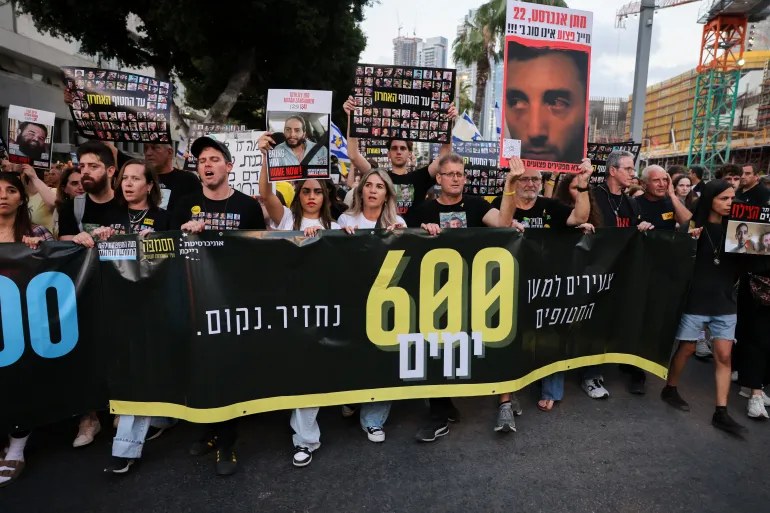As the war in Gaza continues, Israel is experiencing significant internal unrest, with growing protests and refusals of military service reflecting deep divisions within its society.
In recent weeks, Israeli peace activists and anti-war groups have intensified their campaigns against the conflict, while supporters of the war have also increased pressure to continue military operations, regardless of humanitarian, political, or diplomatic costs.
Members of the Israeli military have published open letters protesting the political motivations behind the ongoing war in Gaza. Some have expressed concerns that the latest offensive, which is causing widespread destruction in Gaza, endangers the remaining Israeli captives held in the territory.
Academics from Israeli universities and colleges have also issued an open letter, focusing on Palestinian suffering—a rare occurrence since the war began in October 2023. This letter highlights the growing concern within Israeli society about the humanitarian impact of the conflict.
Campaigns of protest and refusal of military service have spread across the country, driven by a combination of pro-peace sentiment and frustration with the government’s handling of the war. These movements pose a risk to Israel’s war effort, which relies heavily on the active participation of its youth.
Critics argue that Prime Minister Benjamin Netanyahu has become increasingly dependent on the extreme right to maintain his coalition, while the opposition has been reluctant to confront him amid mounting international accusations of genocide.
Despite the growing domestic criticism, a recent poll reported that 82 percent of Jewish Israeli respondents support the idea of clearing Gaza of its Palestinian population, with nearly 50 percent backing what they described as the “mass killing” of civilians in enemy cities occupied by the Israeli army.
On May 26, thousands of Israelis, led by National Security Minister Itamar Ben-Gvir, marched through occupied East Jerusalem’s Old City during the “Jerusalem Day” celebrations. Chanting slogans such as “death to Arabs,” the marchers attacked individuals perceived to be Palestinian or supportive of Palestinians.
Finance Minister Bezalel Smotrich, known for his ultranationalist views, addressed the crowd, advocating for the annexation of the occupied West Bank and the displacement of Palestinians from Gaza. He challenged the crowd, asking, “Are we afraid of victory?” and “Are we afraid of the word ‘occupation?'” to which the crowd responded with a resounding “no.”
These events underscore the deepening polarization within Israeli society, as the war in Gaza continues to fuel internal conflicts and debates over the nation’s future direction.
Source; Al Jazeera



